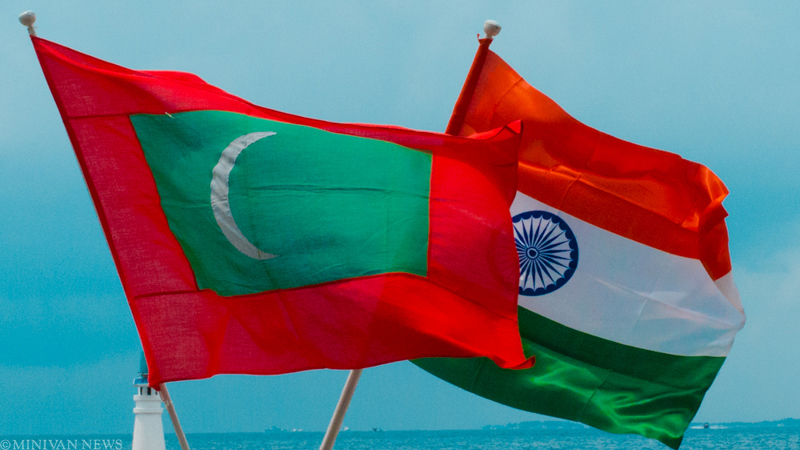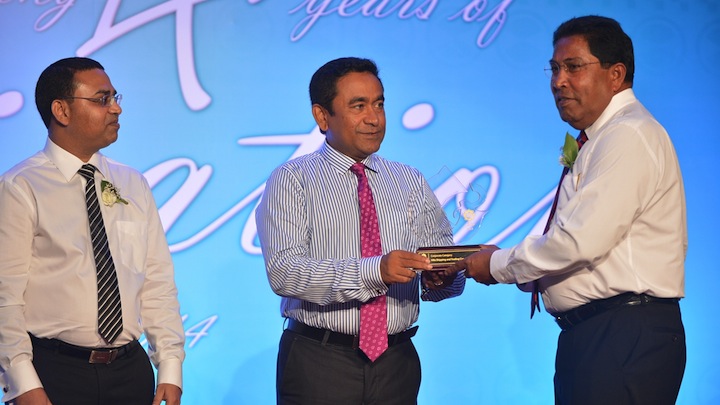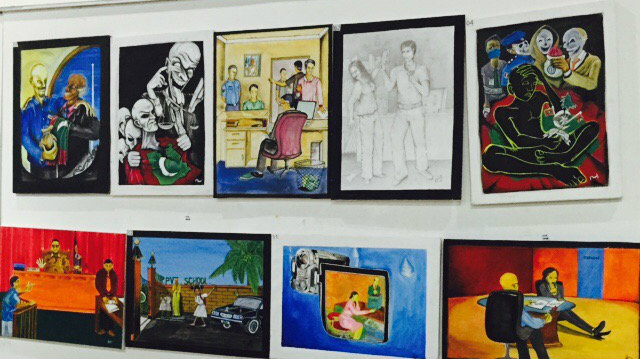The police have denied jailed former President Mohamed Nasheed’s requests to contact his international legal team, stating they must first register with the attorney general’s office.
The opposition leader was sentenced to 13 years in jail last month on terrorism charges in a trial heavily criticised by foreign governments, the UN and Amnesty International for its apparent lack of due process.
Nasheed’s international legal team is made up of heavyweight human rights lawyers including Amal Clooney, who has advised the UN and is the wife of Hollywood actor George Clooney, Jared Genser, the founder of renowned campaign group for political prisoners Freedom Now and Ben Emmerson QC, a former UN rights chief on counter terrorism.
The international team is to push for Nasheed’s “freedom from arbitrary detention” through international lobbying mechanisms such as the UN working group on arbitrary detention, the opposition leader’s domestic legal team has said.
The working group’s decision on Nasheed’s detention will affect the international community’s policies towards the Maldives and will inform decisions on possible sanctions, lawyers said.
Speaking to the press today, Nasheed’s lawyer Hassan Latheef said Nasheed had met with a representative from the Commonwealth yesterday.
However, the former president refused to speak about his trial with the British judge Peter Beaumont CBE QC, stating an additional inquiry into his trial will serve no purpose.
“President Nasheed told the delegation he does not believe the commonwealth needs to do an additional inquiry into the Maldivian judiciary. He said the Commonwealth knows very well the state of the Maldivian judiciary and its courts, and so there is no meaning to do an additional report into his trial,” Hassan said.
Nasheed requested the Commonwealth’s aid in reforming the Maldives’ system of governance and criticised the government’s jailing of rivals, including himself and ex-defence minister Mohamed Nazim.
The result of the Commonwealth-backed inquiry into the 2012 transfer of power had undermined both the government and the opposition’s trust in the organisation, Nasheed reportedly said.
The inquiry was established after Nasheed claimed he had been forced to resign in a coup d’état following a military and police mutiny. But the commission’s report found the transfer of power to be lawful and said there was no mutiny.
Foreign minister Dunya Maumoon in February reacted harshly to Commonwealth criticism of Nasheed’s prosecution, stating the organisation had “wronged us in the past and you are still mistreating us.”
But with growing international criticism of the trial and sentence, the government invited representatives from the Commonwealth and EU to observe an appeal process.
However, Nasheed has refused to file an appeal, instead appealing to President Abdulla Yameen for a political solution. His supporters have called on President Yameen to release the former president by exercising powers granted in the clemency law.
The opposition has been protesting daily for two months over Nasheed’s arrest and imprisonment.
Correction: An earlier version of this article said Nasheed’s international lawyers were planning a visit to the Maldives. This is incorrect. Minivan News apologizes to its readers for the mistake.





